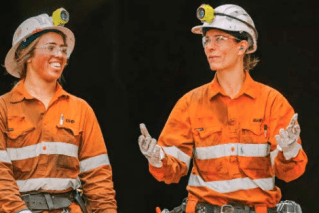How spending $37 billion to fix the housing problem has failed the young
A housing research group has claimed government programs like first-home-owner grants along with low interest rates had made it more difficult for aspiring home owners to crack the market.


Homebuyers now need a decade to save up for a median priced home (pic: ybr.com.au)
The research, which was done by three major universities, for the Australian Housing and Urban Research Institute, found that buying a first home was increasingly dependent on the bank of mum and dad with the likelihood of buying a first home increasing by 40 per cent if people were allowed to live rent-free with their parents.
It also revealed that governments had spent $37 billion over the past five decades to enable first home ownership, yet to problem had seemingly become worse.
Lower interest rates since the 1990s had contributed about a third of the increase in house prices over the years and insecure work for younger people was also a major factor, the report claimed.
“Lower borrowing costs have been more than offset by the additional burden associated with deposit constraints for first homebuyers,” it said
“Policy settings adopted over the past three decades have been poorly targeted and create little additionality.
“There is broad consensus that such measures exacerbate the challenge of financing first home ownership, rather than alleviate it.”
It made several recommendations including systems that allowed people to rent-to-buy, mortgage guarantee schemes and shared equity.
AHURI said fewer younger Australians were becoming first homebuyers and the average age of buying a first home had increased from 26 years in the late 1960s to 31 years in the mid-2010s. In the 1990s it took the average household six years to save for a home deposit. By the late 2010s that had blown out to between nine and 10 years.
The University of Sydney’s Professor Stephen Whelan said that while high house prices were often cited as the biggest challenge faced by first homebuyers, the research found that the problem was significantly more complex.
“Critically, we found existing policy settings are likely to have exacerbated rather than alleviated the challenge faced by first homebuyers to finance home ownership,” Whelan said.
“Politically seductive measures such as first homeowner grants and tax concessions have failed to arrest declining rates of home ownership over time.
“We need a system where people can have a secure home for a longer term without needing to own the title.”
This was where rent-to-buy could work by offering security and life-long well-being outside normal home ownership.
Whelan said Government reforms such as abolishing stamp duty for first-home buyers was positive.
“Current policy settings tend to disadvantage aspiring first home buyers and benefit existing homeowners,” he said.
“Mortgage guarantee schemes can help first home buyers access the housing market without requiring an unattainable deposit, while share equity schemes can help first home buyers gain access to the market with a lower downpayment as well as making ongoing repayments more affordable.”












